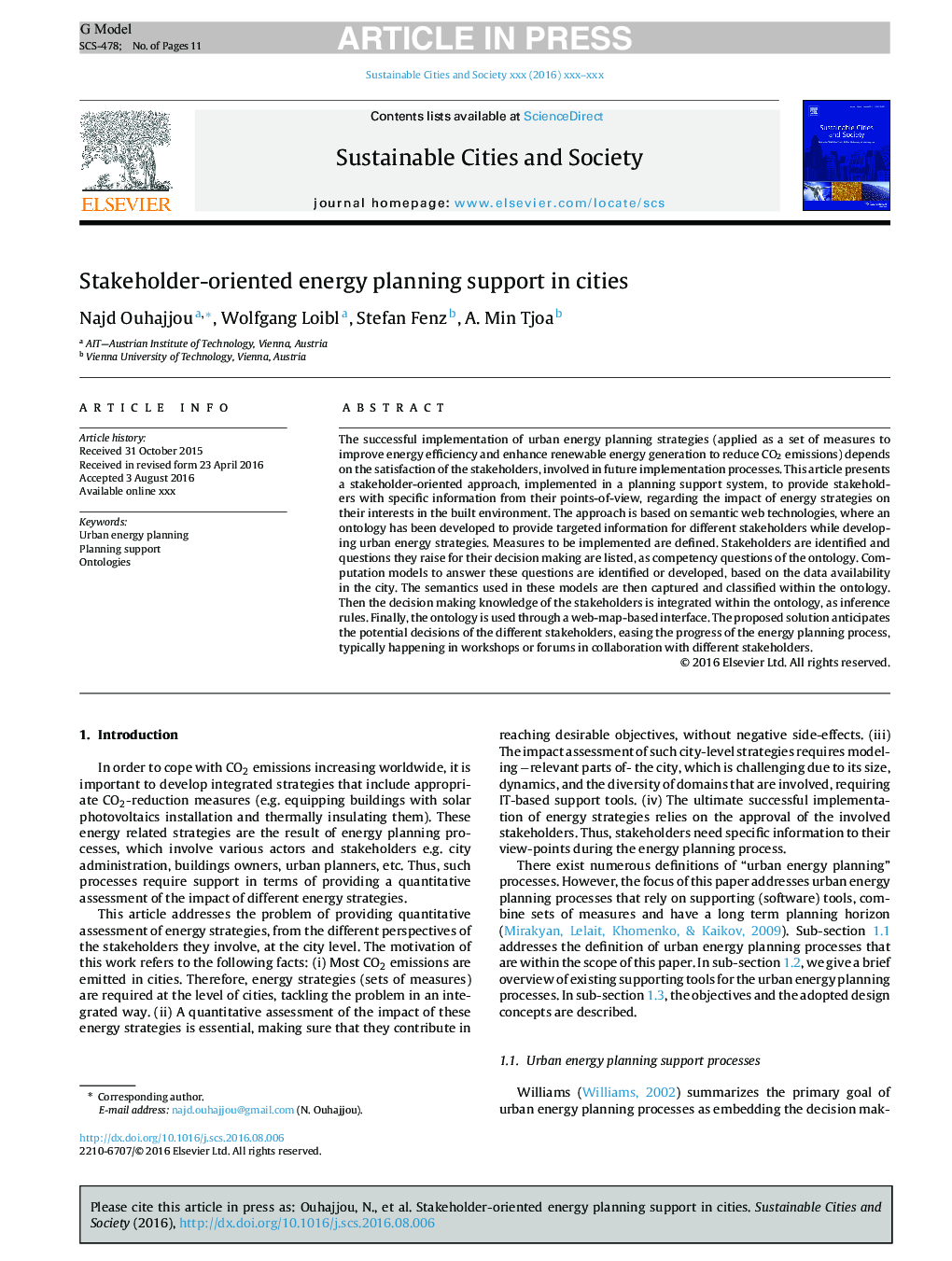| Article ID | Journal | Published Year | Pages | File Type |
|---|---|---|---|---|
| 4928209 | Sustainable Cities and Society | 2017 | 11 Pages |
Abstract
The successful implementation of urban energy planning strategies (applied as a set of measures to improve energy efficiency and enhance renewable energy generation to reduce CO2 emissions) depends on the satisfaction of the stakeholders, involved in future implementation processes. This article presents a stakeholder-oriented approach, implemented in a planning support system, to provide stakeholders with specific information from their points-of-view, regarding the impact of energy strategies on their interests in the built environment. The approach is based on semantic web technologies, where an ontology has been developed to provide targeted information for different stakeholders while developing urban energy strategies. Measures to be implemented are defined. Stakeholders are identified and questions they raise for their decision making are listed, as competency questions of the ontology. Computation models to answer these questions are identified or developed, based on the data availability in the city. The semantics used in these models are then captured and classified within the ontology. Then the decision making knowledge of the stakeholders is integrated within the ontology, as inference rules. Finally, the ontology is used through a web-map-based interface. The proposed solution anticipates the potential decisions of the different stakeholders, easing the progress of the energy planning process, typically happening in workshops or forums in collaboration with different stakeholders.
Related Topics
Physical Sciences and Engineering
Energy
Renewable Energy, Sustainability and the Environment
Authors
Najd Ouhajjou, Wolfgang Loibl, Stefan Fenz, A. Min Tjoa,
